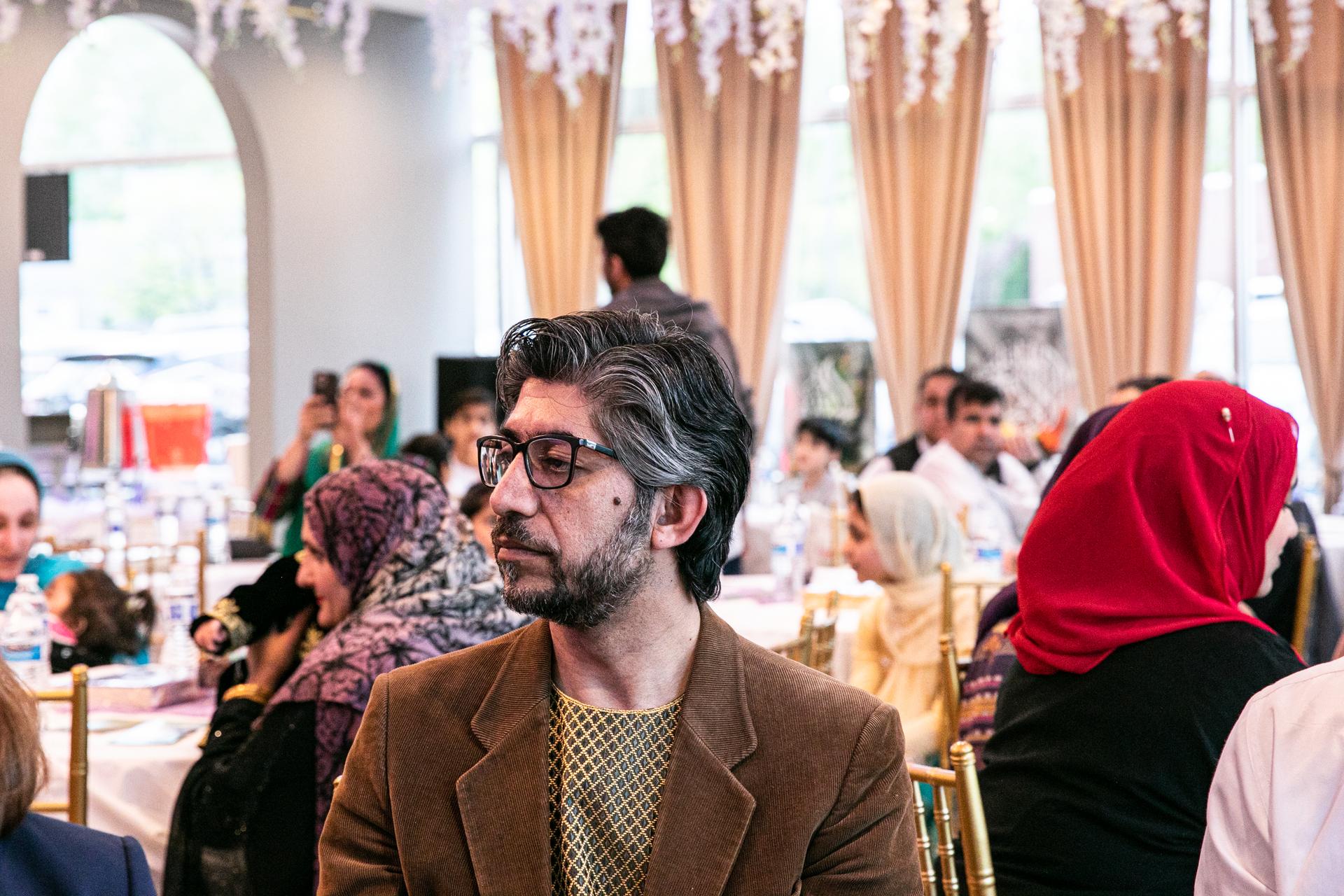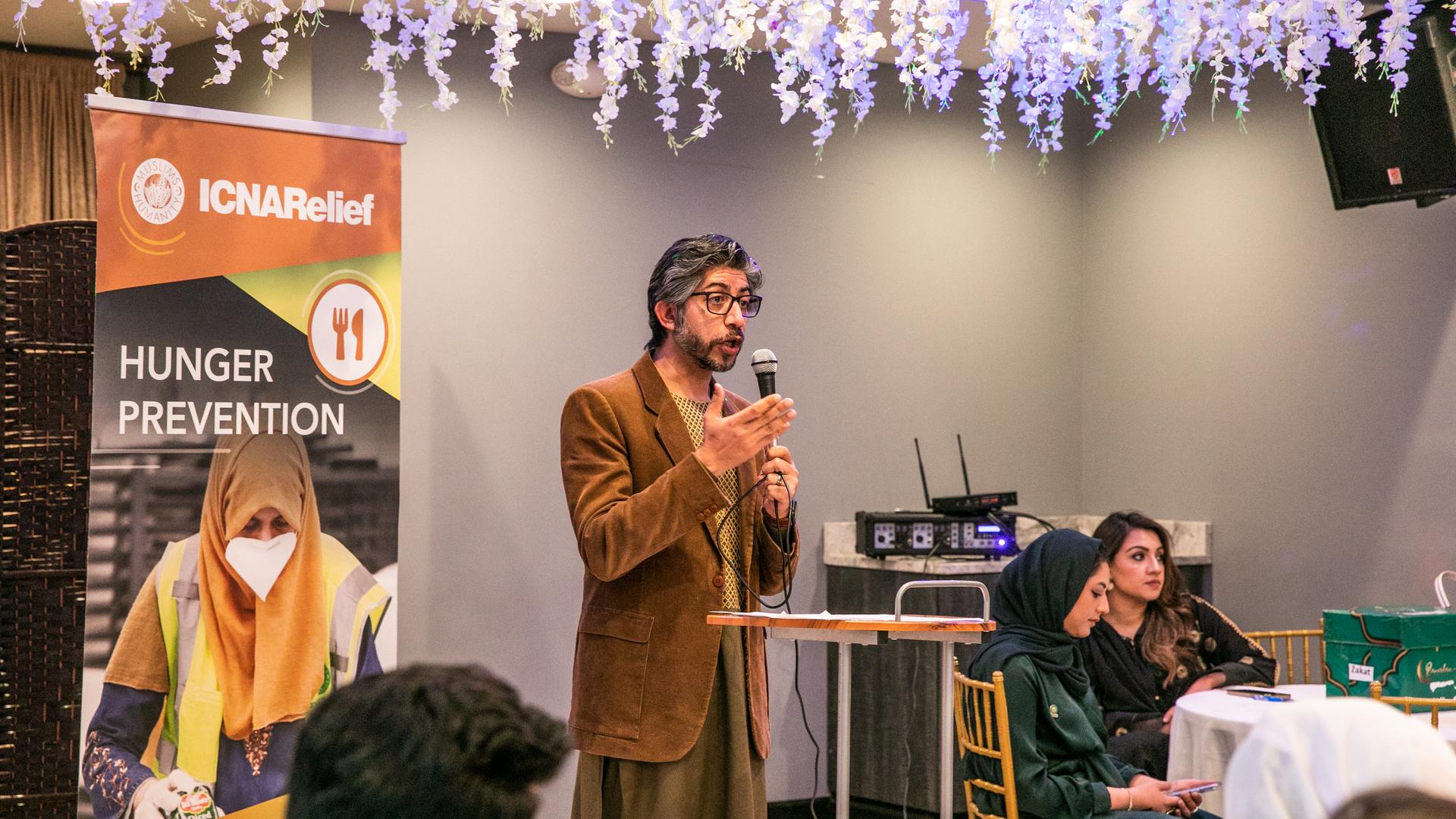Fazlullah Safi was a captain in the Afghan National Army’s medical unit treating soldiers until the government was toppled by the Taliban in August of 2021.
He said that his family remains in hiding in Afghanistan from the Taliban because of his affiliation with the former Afghan army. The Taliban searched for him at his family’s home several times, bringing a photo of him in his army uniform.
“I cannot go back to Afghanistan because they [will] target me,” Fazlullah Safi, 28, said, speaking from an iftar gathering hosted by the Afghan American Foundation and ICNA Relief in Woodbridge, Virginia, at the end of Ramadan last month.
Fazlullah Safi is among the more than 78,000 Afghan refugees who arrived in the United States in the days following the fall of Kabul through the humanitarian parole program called Operation Allies Welcome, which was set up by the Biden administration to accommodate the urgent evacuation.
The Department of Homeland Security’s humanitarian parole program allows the refugees to remain in the country for around two years. Similar programs were set up in the past for refugees from Vietnam, Cuba and Iraq. However, the program does not grant permanent resident status or provide a pathway to US citizenship — and it expires this summer.

Earlier this month, the Department of Homeland Security announced that it is establishing a process starting in June that will allow Afghan nationals to request reparole so they can continue living and working legally in the United States for another two years.
But this is only a temporary fix for protections from deportation. DHS has encouraged Afghan refugees to pursue permanent status through other avenues, including asylum — a lengthy and expensive process.
Fazlullah Safi’s cousin, Nazanin Omarzada Safi, 29, also a parolee, said she has been waiting for over a year for her asylum case to be approved. She was a doctor with the Afghan army and was injured during the evacuation.

As a woman working in today’s Afghanistan, especially having worked for the Afghan military, she said it would be a death sentence for her to return to Afghanistan.
In addition to needing a legal pathway to stay in the United States, she said that she is unable to apply for certain benefits and jobs as a parolee. The permanent solution to situations like hers, she said, is for Congress to pass the Afghan Adjustment Act, a bipartisan bill that would allow the refugees to stay permanently.

Mustafa Babak is the executive director of the Afghan American Foundation, which has been advocating for the Afghan Adjustment Act. It was introduced by the last Congress, but it wasn’t included in the omnibus bill before the end of last year — despite strong support from senior military leaders.
“We have done a lot of advocacy around a permanent pathway for Afghans to make America home,” he said. “We believe there are moral responsibilities for the United States, with whom Afghans, in general, actually, fought in promoting democracy, in bringing peace and stability and economic development.”

Sen. Chris Coons, a Democrat from Delaware, a co-signer of the Afghan Adjustment Act bill last year, is negotiating with potential additional co-sponsors to create a strong, bipartisan group that will reintroduce the bill to Congress.
“I’ve heard dozens of stories in person, by phone, through email, about Afghans who were relocated to the United States and who are here under humanitarian parole, which expires this summer after two years, who are anxious and are concerned about the lack of a clear path towards permanent residency,” Coons said.
If the bill isn’t passed, he said, the “alternative is a badly broken asylum system that is swamped by a backlog.”
As of February, fewer than 5,000 Afghans who were evacuated to the US have been able to obtain permanent residence.
Joseph Azam was born in Afghanistan and moved to the United States in the early 1980s and serves on the board of the Afghan American Foundation.
Azam said that although the Afghan parolees were able to obtain employment authorization and send their kids to school, all of that is “just contingent on their continuing to have legal status. … The public doesn’t understand that the clock is ticking.”
Azam said that he is concerned about Afghanistan falling off the public’s radar.

“The world is changing, and attention shifting,” he said. “And so, it’s going to be harder and harder to keep this front of mind for people, but we are trying.”
Opponents of the Afghan Adjustment Act who blocked the bill say that Afghan refugees need to undergo more security vetting.
But some say resistance to passing the Afghan Adjustment Act is part of a larger issue around immigration.
“Any topic on immigration, whether it’s about the border, about Dreamers, about Afghans, about even high-skilled immigrants who can really contribute to our economy, Congress is really struggling to act on immigration,” said Julia Gelatt, a senior policy analyst at the Migration Policy Institute.
“Congress is just having a hard time passing anything. Every single piece of legislation seems to become politicized and really difficult to pass,” she added.
Our coverage reaches millions each week, but only a small fraction of listeners contribute to sustain our program. We still need 224 more people to donate $100 or $10/monthly to unlock our $67,000 match. Will you help us get there today?
